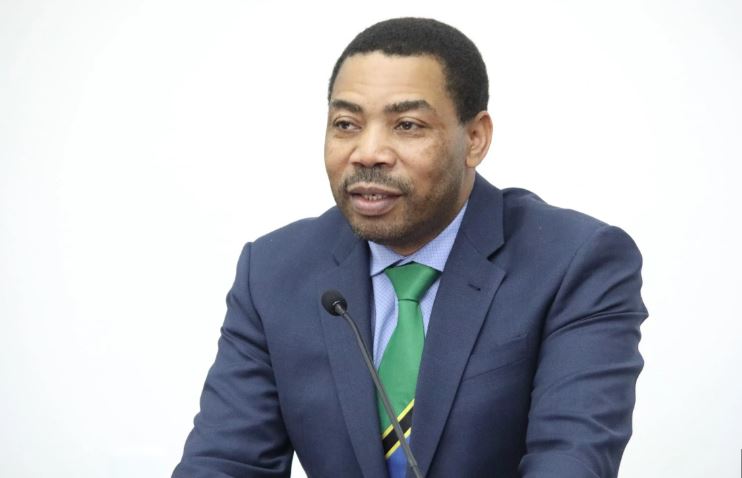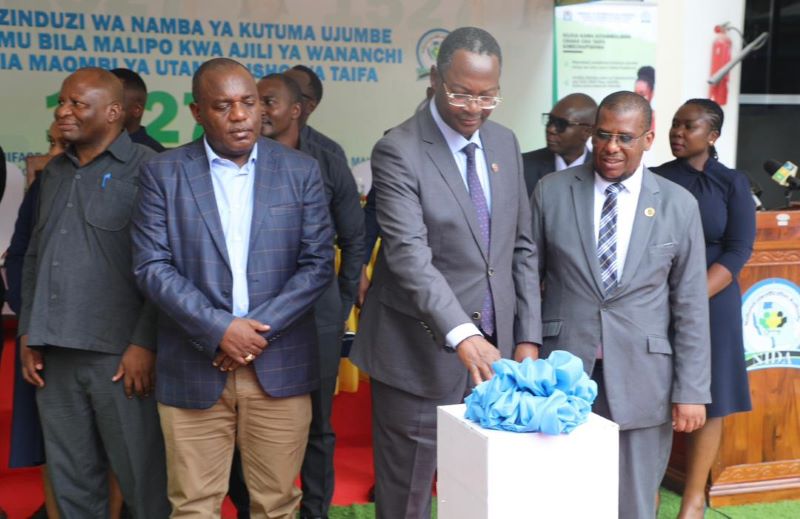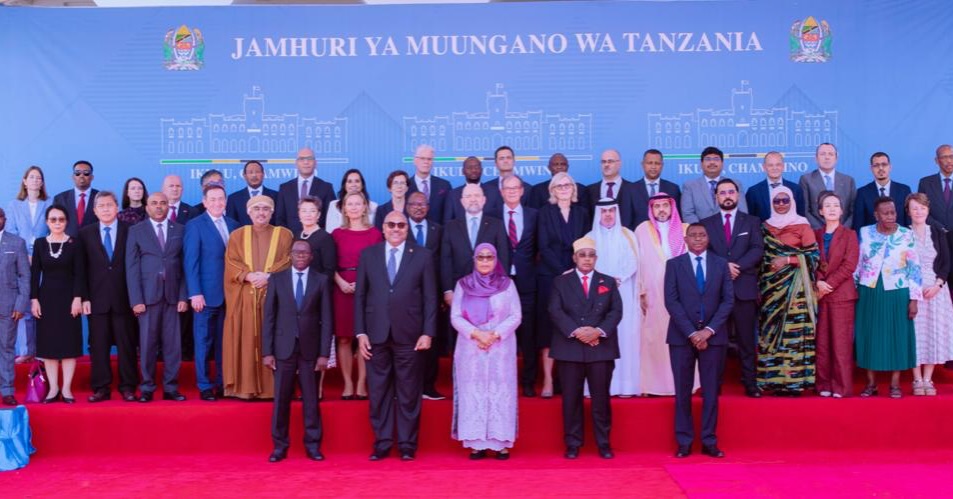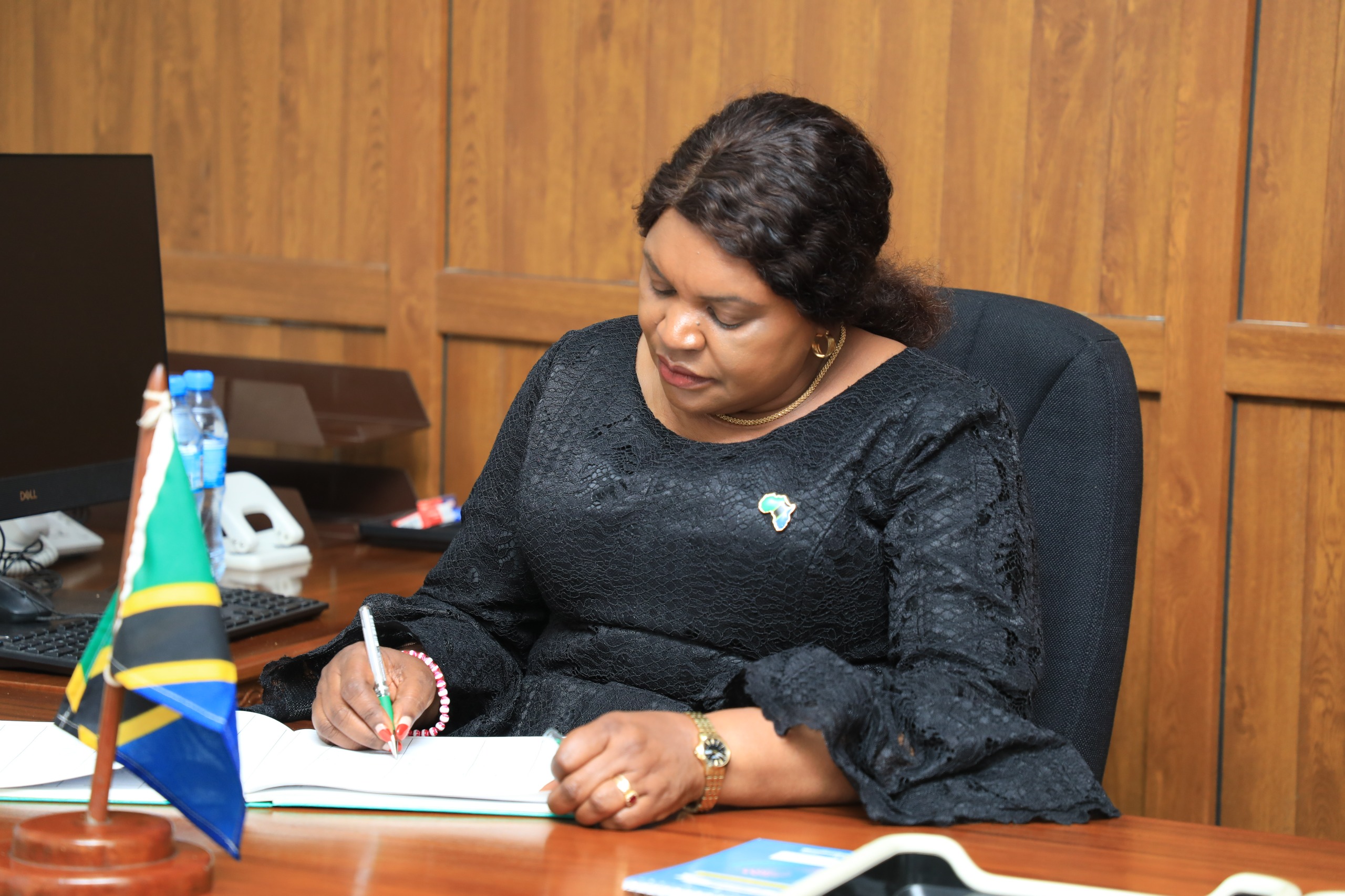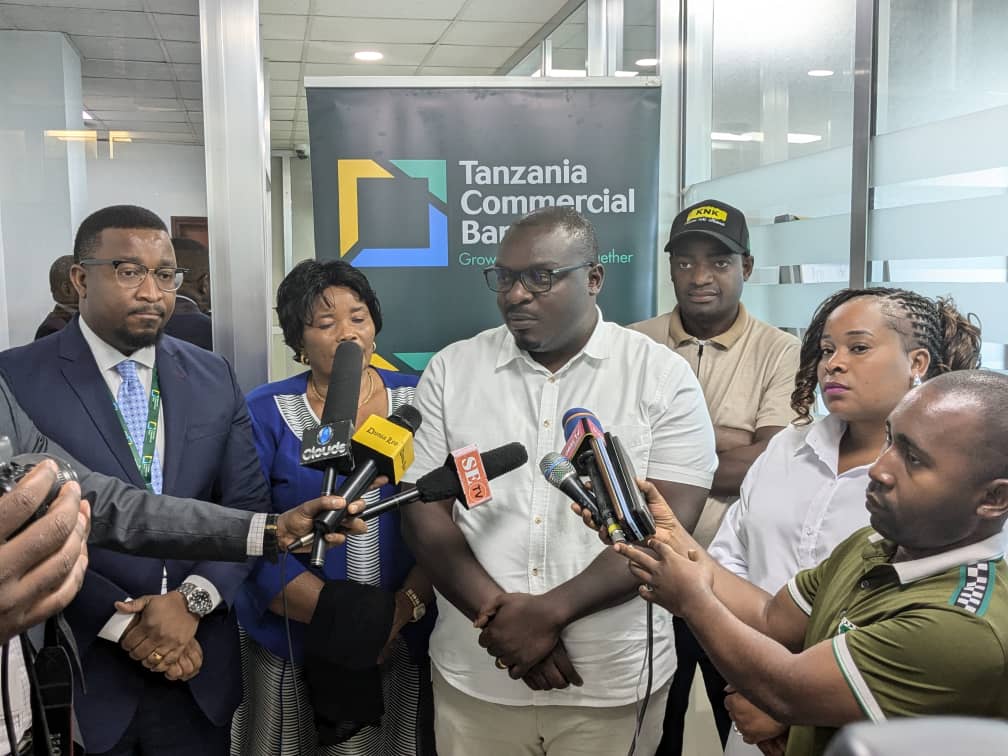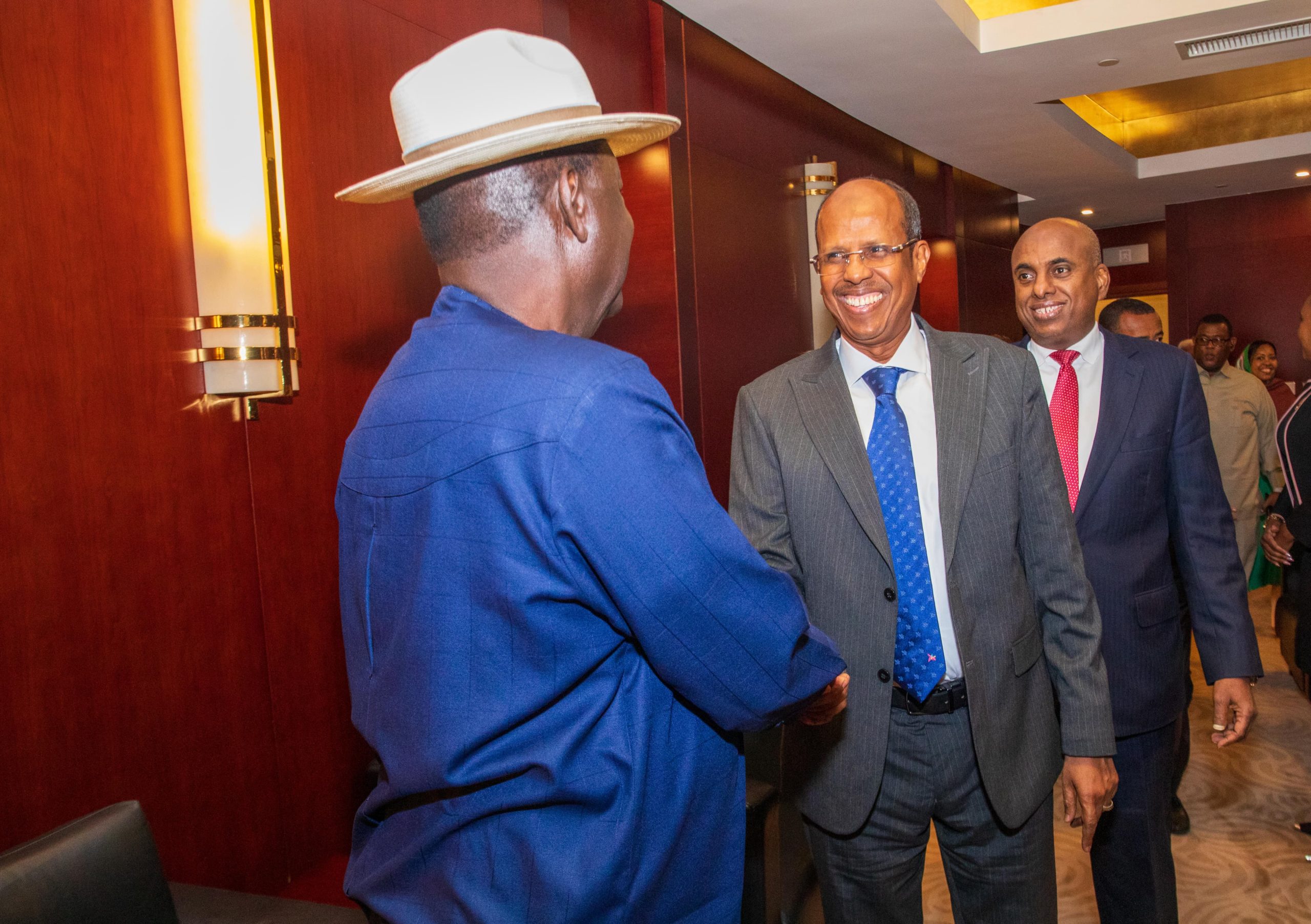Dodoma. Known for his sharp intellect, disciplined approach to public finance, and steady rise through the ranks of government, Dr Mwigulu Lameck Nchemba has now assumed one of Tanzania’s most powerful office, Prime Minister of the United Republic of Tanzania.
His appointment, endorsed by Parliament on November 13, 2025, marks both continuity and change within the administration of President Samia Suluhu Hassan, signalling a focus on economic consolidation, policy coherence, and the efficient execution of government programmes.
More than a career politician, Dr Nchemba represents the rare blend of academic depth, technocratic competence, and grassroots understanding.
Early life and academic foundations
Born on January 7, 1975 at Makunda village, Iramba District in Singida Region, Dr Nchemba hails from a humble pastoralist family.
His formative years were marked by hardship, simplicity, and the endurance that often shapes great leaders.
Recounting his childhood during his acceptance speech in Parliament, he moved legislators to emotion when he said:
“I have not learned about Tanzanians’ poverty from textbooks. I have lived it for about 32 years. I would not sleep until my mother or sister finished their night chores and gave me the cloth they had wrapped themselves with during the day to use as my bed sheet.”
He described how, as a young boy herding cattle and goats, he would sometimes use animal skins as mats and, when it rained, as covers to shield himself from the leaking roof of their small hut.
Such experiences, he said, inspired his life-long commitment to tackling poverty and economic exclusion, principles that would later inform his academic and professional pursuits.
Dr Nchemba began his education in Singida before attending secondary schools in Arusha and Dodoma, where he excelled in mathematics and economics.
His academic promise led him to the University of Dar es Salaam (UDSM), where he pursued higher education in economics.
He holds both a Doctor of Philosophy (PhD) in Economics and a Master’s degree from UDSM.
His doctoral thesis, completed in 2018, explored macroeconomic policy and fiscal management—fields that would later define his public career.
His academic work underscored the need for prudent fiscal frameworks and evidence-based policy in achieving sustainable development.
From central banking to national politics
Before joining politics, Dr Nchemba worked with the Bank of Tanzania (BoT), where he gained extensive experience in monetary policy, financial regulation, and national budgeting.
His tenure at the central bank gave him both technical mastery and a first-hand appreciation of the complexities of managing a growing economy, balancing inflation, debt, and development needs while maintaining stability.
In 2010, he entered elective politics and won the Iramba West parliamentary seat on the Chama Cha Mapinduzi (CCM) ticket.
His entry into Parliament marked the start of a steady political ascent defined by trust from party leadership and a consistent record of delivery.
He also served within the party as the CCM treasurer between 2011 and 2012 and then as the party deputy Secretary General between 2012 and 2015.
A versatile ministerial career
Dr Nchemba’s ministerial trajectory demonstrates both depth and adaptability.
His first national appointment came in 2012, when he was named Deputy Minister for Finance and Economic Affairs.
Three years later, in November 2015, he was elevated to Minister for Agriculture, Livestock and Fisheries, a portfolio central to Tanzania’s largely agrarian economy.
In that position, he championed agricultural reforms aimed at improving productivity, livestock health, and access to credit for smallholder farmers.
His policy focus was on creating linkages between rural economies and national industrialisation goals.
In June 2016, President John Magufuli reassigned him to the Ministry of Home Affairs, entrusting him with internal security, immigration, and law enforcement affairs.
His tenure was marked by efforts to strengthen institutional accountability and streamline administrative procedures.
Though he briefly left Cabinet, he was recalled in May 2020 as Minister of Justice and Constitutional Affairs, overseeing legal reforms and national legislative frameworks, a critical foundation for his later coordination roles in government.
Steward of the national economy
Dr Nchemba’s defining role before his elevation to Prime Minister came in March 2021, when he was appointed Minister for Finance and Planning.
He assumed the post at a challenging juncture, Tanzania, like many nations, was recovering from the economic shocks of the COVID-19 pandemic while grappling with rising global inflation and supply chain disruptions.
Under his stewardship, Tanzania maintained macroeconomic stability, with annual GDP growth averaging 5.2 percent between 2021 and 2024, and inflation kept below 5 percent despite global pressures.
He strengthened domestic revenue mobilisation through modernisation of the Tanzania Revenue Authority (TRA), tightened expenditure controls, and oversaw key fiscal policies under the Five-Year National Development Plan (FYDP III).
Dr Nchemba also pushed for the expansion of the local industrial base through the “Made in Tanzania” initiative, improved debt transparency, and secured funding for strategic projects such as the Standard Gauge Railway (SGR), the Julius Nyerere Hydropower Project, and Dodoma’s new government city infrastructure.
He became known for his data-driven decision-making, insistence on accountability in public spending, and ability to balance fiscal prudence with social investment.
His reputation for discipline and professionalism earned him wide respect within the Cabinet and international financial circles.
A new chapter in leadership
As Prime Minister, Dr Nchemba now shoulders the responsibility of coordinating government business across ministries, a demanding role that requires both administrative skill and political tact.
He will oversee the implementation of the President’s Third Term Policy Agenda (2025–2030), which prioritises economic diversification, job creation, social inclusion, and the acceleration of large-scale infrastructure works.
The office of the Prime Minister also supervises regional administration and local government authorities, requiring him to bridge the gap between national policies and community-level execution.
Dr Nchemba’s immediate challenges include ensuring the timely completion of megaprojects such as the SGR, expanding port capacity at Dar es Salaam, Tanga, and Mtwara, strengthening the energy grid, and deepening reforms in public service efficiency.
He will also need to maintain Tanzania’s growing investor confidence by streamlining regulatory processes and ensuring that fiscal policy supports private sector expansion.
Balancing these ambitions while upholding transparency and accountability will demand from him the same technical discipline that has defined his career so far.
The measure of his mandate
Dr Nchemba’s rise embodies a Tanzanian story of resilience and determination—a journey from the cattle fields of Singida to the corridors of the nation’s most powerful offices.
His premiership symbolises both generational renewal and policy continuity, aligning technical know-how with the political mandate of President Samia’s administration.
As he takes charge, expectations are high that he will sustain economic stability, protect public resources, and lead with a focus on delivery rather than rhetoric.
Parliament’s approval of his nomination on 13 November 2025 closed one chapter of service and opened another, as Tanzanians look to him for decisive leadership in translating policy ambition into tangible results.
In Dr Mwigulu Nchemba, the nation finds a Prime Minister whose life story mirrors its own, rooted in modest beginnings, shaped by education and perseverance, and driven by an unwavering belief in hard work.
His leadership now begins where his story started—with the promise that no background, however humble, can limit one’s destiny when guided by diligence, discipline, and service to the nation.

